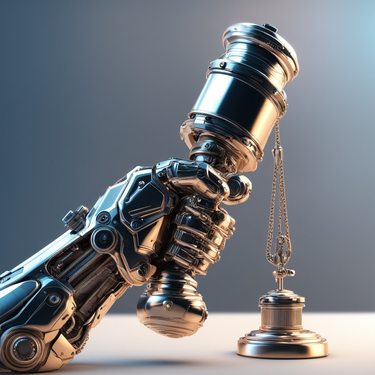
The legal profession is undergoing a profound transformation as Artificial Intelligence (AI) becomes an integral part of legal practice. This technological revolution is not just a trend; it's a fundamental shift that is reshaping how legal professionals approach their work.
Traditionally, legal research demanded exhaustive hours of poring over statutes, case law, and precedents. With the advent of AI, this paradigm is changing. Natural Language Processing (NLP) algorithms now enable AI tools to swiftly analyze vast legal datasets, providing lawyers with quick and accurate insights. This not only expedites the research process but also allows legal professionals to redirect their efforts towards more strategic aspects of their cases.
AI's influence extends beyond research into contract review and drafting. NLP algorithms empower AI tools to understand and analyze contracts, offering suggestions for improvements. This not only accelerates the drafting process but also ensures greater accuracy and consistency in legal documents.
Predictive analytics, powered by AI's ability to analyze historical case data and identify patterns, is another game-changer. Legal professionals can leverage these insights to make informed decisions about potential case outcomes, enhancing strategic planning and empowering attorneys to navigate legal challenges with a deeper understanding of likely scenarios.
The once labor-intensive tasks of document review, e-discovery, and due diligence are now streamlined and made more efficient by AI-driven automation. This not only saves time but also reduces the likelihood of human error, ensuring more accurate and reliable results. Legal professionals can now focus on the more complex and high-value aspects of their work.
However, the integration of AI in the legal field is not without ethical considerations. Issues such as algorithmic bias, data privacy, and the accountability of AI systems raise complex questions. Establishing robust ethical guidelines is imperative to address these concerns and maintain the trust and integrity of the legal profession.
As AI becomes more ingrained in legal practice, it necessitates a shift in the skill set required by legal professionals. Training programs focusing on understanding AI technologies, data analysis, and algorithmic decision-making are becoming indispensable. Lawyers who embrace these new skills will be better equipped to navigate the evolving legal landscape and stay competitive.
In conclusion, the infusion of AI into the legal field represents more than just a technological upgrade; it signifies a paradigm shift in how law is practiced. Legal professionals who adeptly harness the power of AI will find themselves at the forefront of a new era in law, one characterized by enhanced efficiency, informed decision-making, and a redefined approach to the practice of justice. The future of law is undeniably intertwined with the capabilities of AI, and those who navigate this landscape with agility and foresight will shape the trajectory of legal practice in the years to come.






Comments